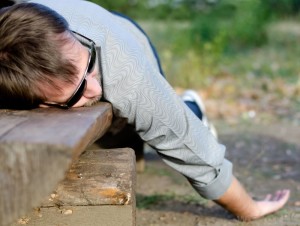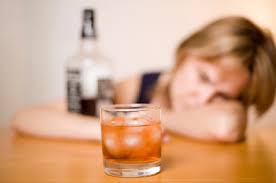Get Help With Alcohol Addiction
- Find meetings near you
- Discover online or in person meetings
- Get 24 hour information on addiction
Alcoholic beverages have all but become an American pastime, playing a part in most all special occasions and celebrations. Alcohol’s effects produce feelings of relaxation and well-being, which makes it that much easier to keep drinking. Binge drinking takes alcohol indulgence to a whole other level, oftentimes producing dangerous health effects.
Binge Drinking
According to the Centers for Disease Control & Prevention, binge drinking exists as the most common pattern of excessive alcohol use. Bingeing entails consuming large quantities of alcohol at a single setting. This practice increases the body’s blood alcohol concentration to dangerously high levels within a short period of time. Amazingly, over half of the alcohol consumed by adults in the U. S. is in the form of binge drinking.
Dangers of Binge Drinking
1. Blackout Episodes
Alcohol produces depressant effects, slowing down chemical activities in the brain and central nervous system. Alcohol exerts its effects at individual brain cell sites by increasing neurotransmitter secretion rates. Binge drinking essentially floods the brain with excess neurotransmitter chemicals, creating rampant chemical imbalance throughout the brain and body.
In effect, the more alcohol a person consumes the slower the body’s systems function. Blackout episodes result when brain functions slow to the point where a person loses consciousness or is no longer aware of the surrounding environment.
2. Health Problems
Over time, binge drinking practices take a considerable toll on the body to the point where serious health problems can develop. According to the National Institute on Alcohol Abuse & Alcoholism, health problems resulting from binge drinking may include:
- Cardiovascular disease
- Stroke
- Liver disease
- High blood pressure
- Sexual dysfunction
- Neurological impairment
- Diabetes
3. Psychological Dysfunction
Any form of excess alcohol damages brain cells over time. Binge drinking essentially kills off brain cells due to the degree of strain cells undergo from producing excess neurotransmitter chemical supplies.
These effects inevitably start to impair a person’s psychological health. Psychological impairments brought on by binge drinking include:
- Depression disorders
- Anxiety-based disorders
- Memory problems
- Confusion
- Learning difficulties
4. Alcohol Addiction
Chemical imbalances brought about by binge drinking disrupt functions within the brain’s reward system, an area that regulates learning and ultimately dictates what motivates a person’s behaviors throughout the day. The brain reward system relies on stable levels of dopamine, one of the neurotransmitters affected by alcohol, to function normally.
With frequent binge drinking this system comes to view alcohol as an essential need within a person’s daily life. These changes account for why alcoholics continue to drink in spite of the negative consequences that result.
5. Alcohol Poisoning
After a certain point, elevated blood-alcohol concentrations have toxic effects on the body’s cells and tissues while at the same time impairing normal body functions. According to the University of Rochester Medical Center, alcohol’s ability to slow down chemical activities throughout the body can result in slowed heart rates, slowed breathing rates as well as inhibiting the body’s natural gag reflex. Subsequently, someone who binge drinks on a regular basis runs a high risk of alcohol poisoning, overdose and even death.
Considerations
Alcohol consumption in general is not a bad thing; however, serious health problems can arise when binge drinking practices become the norm rather than the exception. If you or someone you know have concerns about the effects of binge drinking and have questions about alcohol addiction or alcohol rehab treatment, please feel free to call our toll-free helpline at
800-948-8417
Sponsored
for more information.

